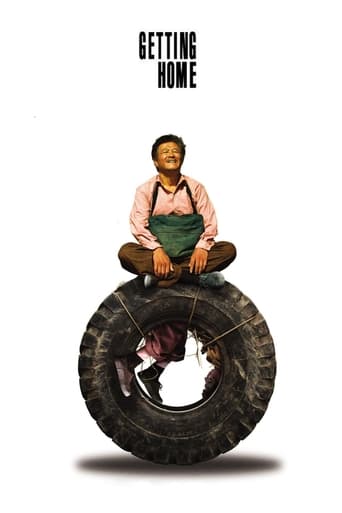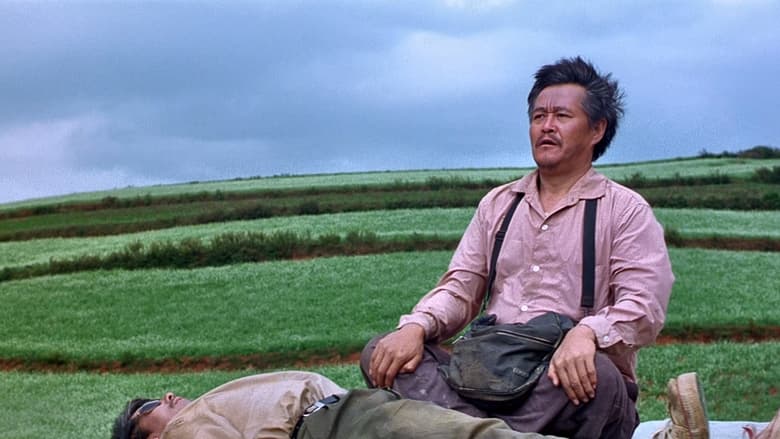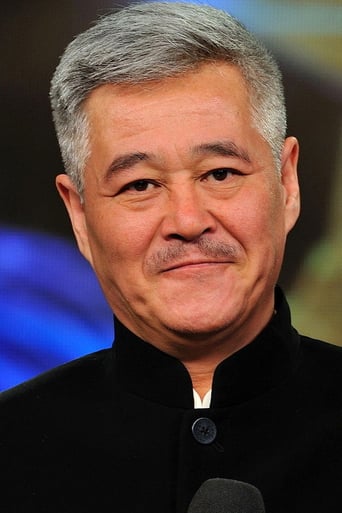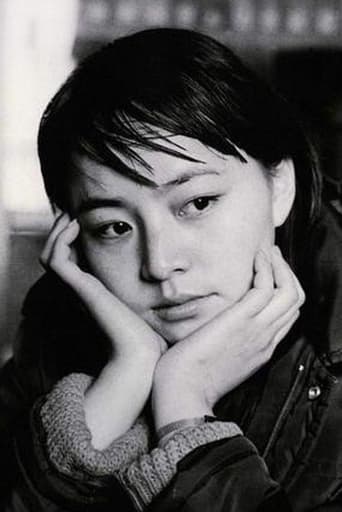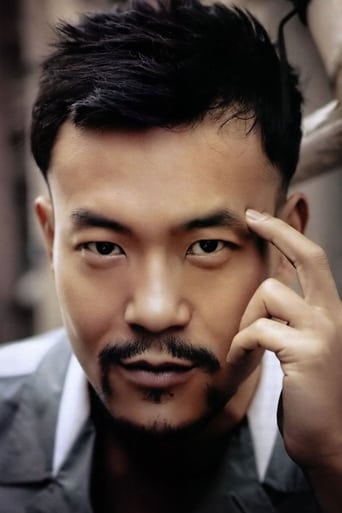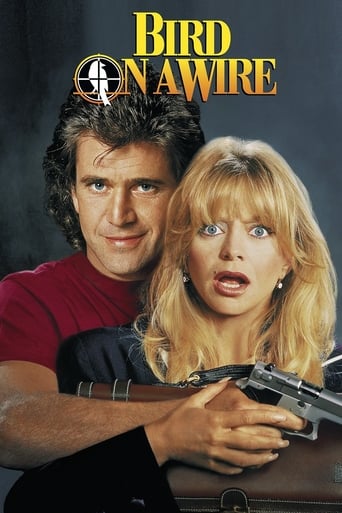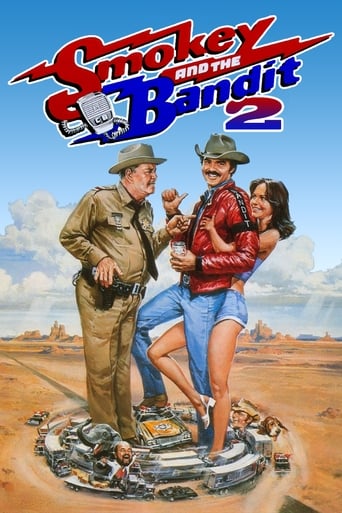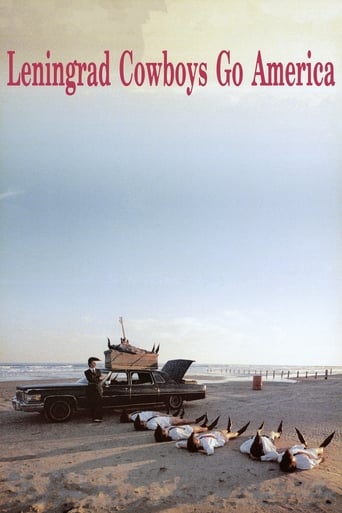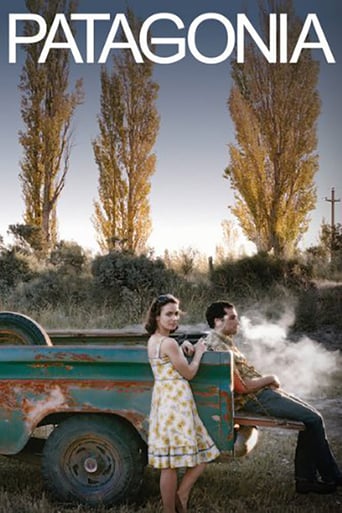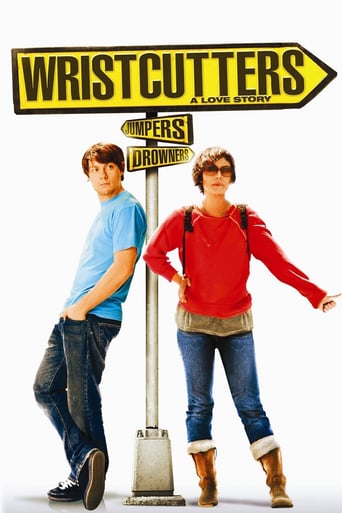Getting Home (2007)
A black comedy about a farmer who tries to bring home the body of his friend, who died far from their town.
Watch Trailer
Cast
Similar titles
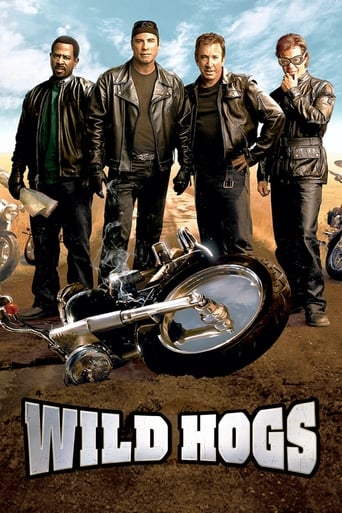
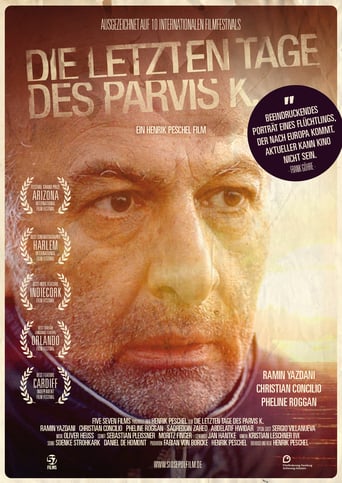
Reviews
Waste of time
Absolutely the worst movie.
One of the most extraordinary films you will see this year. Take that as you want.
This is a dark and sometimes deeply uncomfortable drama
If the motherland were a river, I would be a fish swimming happily. If the motherland were a road, I would be a car moving forward happily. If the motherland were a tree, I would be a leaf waving in the breeze happily.Life is unpredictable, consisting of ups and downs.Sometimes you may be in high spirits, but at other times you can feel very low. Sometimes you may meet very good people, but don't forget villains do exist. Sometimes you may bound forward and run quickly, but you can be found staggering along one night.After a dead leaf falls down, it is absorbed by the soil and a new plant will grow.The cycle of birth, growth and death repeats itself, like the river in the last scene. That's life...No matter how feeble and helpless we may feel sometimes, human beings will still struggle with the environment and fate for an opportunity to live. Ahead of us are lots of things to experience, exciting and depressing. Nevertheless, because of pain, we know what pleasure is. (That's just like the walking scenes in the movie. When the girls working in the field, cars, cow and bicycle pass by, we know how fast Old Zhao walks. By the way, the audience may pay attention to the symbolic meanings of different vehicles in the movie, e.g. bicycles, coaches, carts, private cars, trucks, buses, etc.) If we were doomed to the sufferings, what we are able to change would be the way in which we interpret them. Be positive and never give up! The movie ends suddenly and the unfinished business may puzzle some members of the audience. However, I personally find it very meaningful and symbolic. The ending successfully upgrades this can-be-typical road movie to an abstract motto. "Life is a road comprising UPS and DOWNS. Do live each day happily as it comes and enjoy life to the full!" The ending (i.e. the river) also symbolically implies that human beings should not always emphasize the importance of results. Instead, we should pay attention to the process.Those touching moments, black humor, superb acting and the meaningful ending make this road movie a unique and impressive one causing catharsis. Moved to tears and laughter, you may ponder on the meaning of LIFE when you leave the theatre. My favourite movie in 2007!!!
"A falling leaf returns to its roots" is a Chinese proverb. This endearing film is based on this proverb. It is a modern day story of mainland China--an emerging economic power. Rural migrants are attracted to the cities in search of prosperity. One such 50 year-old-migrant construction worker Zhao (a commendable performance by actor Zhao Benshan), is surprised to find during a drinking bout in a pub that his buddy is not dead drunk but dead as a doornail. As a good peasant would, Zhao vows to keep his promise made during the drinking session that if either buddy died, the other would carry/transport the dead body to the dead man's village and bury his body there. As a promise is promise, Zhao uses all his wits and physical strength to transport the dead body to the village. The fallen leaf has to return to its roots.What a yarn, you will say! But hold on. The Chinese director Yang Zhang and his scriptwriter Yao Wang built the film script around a real incident in 2006 when a Chinese peasant did carry a dead buddy to his village oblivious of all Chinese laws that prohibit such an action to ensure that the dead man did not transform into a "hungry ghost." Now director Zhang, scriptwriter Wang and a fascinating comic actor Zhao Benshan weave a "Pilgrim's Progress" type road-movie story that constantly shifts from escapist top-gear to formidable realism overdrive as it unspools an array of human behavior--some loathsome, some endearing, some moralizing, some quirky but all very real.There are vignettes of Asian values. You encounter robbers who appreciate the value of friendship and return their loot to those who honor commitments of friendship. You are shown mothers living as anonymous rag-pickers and professional blood donors, so that their offspring can pursue a comfortable career in the city. Wealthy rural folk do not know who really loves and respects them, and therefore arrange mock funerals following their own faked death to glimpse the truth. There is the philosophical young man who would like to ride to "Tibet" or the roof of the world. There is a family that lives far away from society because the wife/mother has been disfigured by an accident, and yet is a wonderful person. There is a truck driver who having lost his love is crestfallen, but needs someone else to set the compass of his life to regain his lost love.There are other vignettes that show the unhealthy characteristics of economic progress. Construction companies employ migrants but cheat them by paying salaries in counterfeit notes. Highway restaurants overcharge their clients and use thugs to extort money if they don't pay up. Seedy blood banks pay money for any type of blood donor because there is money in the business. Rich families in cars do not stop to give lifts to the poor and stranded on the roads. Once-robbed travelers do not show compassion to the individual who was responsible for the return of stolen goodsthey are concerned with their possessions. Women accuse men staring at them without bothering to check if the accusation is real or imagined. The list goes on.The movie underlines that there are two sorts of people. One lot cares for others, empathizes with their problems and helps them get out of their predicaments. The other lot lives for themselves and concentrates on their own material interests. The rural folk seem to fall into the first category, while the neo-rich fall into the other.The ultimate destination of the "road movie" is the controversial Three Gorges mega-dam. On route to the dam, the viewer can glimpse breathtaking landscapes of China. Is the director feeling sorry for the village of the dead man (and the associated values that go with rural, simple life) that has been covered with the waters of the dam? Only the director can answer, we can only ask the question.The funny thing about the movie is that while the character and milieu is Chinese, the essential elements are universal in any economy "progressing" from rich traditional values to a more consumerist, urban rat race. It is no wonder that the film won the 2007 Berlin Film Festival Prize of the Ecumenical Jury and the Best Asian film NETPAC award at the recent International Film Festival of Kerala. The movie makes you laugh, but tugs at your conscience. The "falling leaf" in your soul, would like to return to "the root" or traditional life styles when people bonded well and were not out to make a quick buck.Very close in subject and treatment to the 2004 Iranian black comedy "Khab e-talkh (Bitter Dreams)," director Zhang and scriptwriter Yang need to be complimented for painting a "celluloid" canvas that entertains those who crave for escapism (amidst all the black humor). The viewer has to discount the fact that the body does not decay and the Zhao never tires carrying a dead man around. While the escapist element is in the foreground, the real strength of the film comes from the realistic vignettes that are not Chinese but universal in values and temperament. Here is yet another Chinese film that entertains and offers ample food for thought.
I watched this film with my homiez in theatre ,Ji Nan,i found the audience can not help themselves 2 laugh out loudly several times,the main reason IMO is because of Zhao benshan,one of the best comedian in China.Every traditional Chinese new year show,if the show without the performance of Zhao Benshan,maybe kind of boring,so you will know what a great actor he is.This flick directed by Zhang yang who also directed The Shower(XiZao),tells a farmer(in China also called Ming Gong) who tries to bring home the body of his friend, who died far from their town,on the way to his dead friends home happened lots of unexpected things,some of them are funny,some of them are so moving,it proved the priceless of the promise.Zhao benshan played this role so naturally with the accent of northeast,it was hard for a man whose age nearly 50 to nonstop carrying body such a long distance,it make me thinking of a song called "the people from northeast were all alive Lei Feng",lolThis film set in Southwest of China,the scene was beautiful,cinematography and the colors were remarkable...I give this film 10/10,no doubt,if you are a big fan of Zhao benshan,go to watch it,don't miss,it worth your money!
It's all in the family. Director ZHANG Yang's father was a respected director in Beijing. Academically trained, Zhang won the special Critics' Award in Toronto (in the TIFF, the world's largest non-award international film festival) with "Xizao" (The Shower). Unlike another Zhang, this young director stays true to his soul continuing to make simple, heart-warming movies about the common people of China rather than trying to impersonate Hollywood big blockbuster directors. In a recent interview on "Lou ye gui gen", he intimated about the difficulty of marketing a small art-house movie in a country with no art-house cinemas. "Although my movies have more comedy elements and are more accessible, they are still art house movies. I care more about showing my characters' lives and personalities than the box office." "Getting home" (note the subtle use of "getting", not "coming" or "going") is first and foremost a road movie, an international favourite genre that has seen many top notch films: "The Straight Story", "Nashan naren nagou", "Central Station", "Kikujiro no natsu". Although "Getting home" may not be among the most brilliant ones, it does not suffer much by comparison. And I wouldn't call it a "black" comedy ("The cook, the thief, his wife and her love" IS a black comedy) it's more like "grey".The first ten minutes sets the tone for the movie and is worth recounting in some detail, with a SPOILER warning (although I'm not even sure that something in the first 10 minutes in a 2-hour movies can technically be considered a spoiler). It starts with a close up of Zhao gulping down a glass of booze before heading to the bus with his buddy who is dead drunk, on a long trip home after a few years as migrated labourors. Next, we see a "relieving stop" when, according to the well established custom, men go to the bushes on the left and women on the right to relieve themselves. His buddy stays on the bus and is later accused by the returning women for being a peeping Tom, a storm in a tea cup that Zhao quells by apologizing profusely on behalf of his buddy. Then come the highway robbers, declaring in a most professional manner their intention, before coming down the aisle, equipped with metal detectors, to collect contributions. When it comes to Zhao's turn, he insists firmly that they can take his money but not his buddy's. When asked to explain why, he says that the robbers should give his buddy due respect. "He's dead", says he.The rest of the movie, taking it from there, is about this man honouring his promise to his buddy (probably spoken after a few drinks too many) "If you die here, I wouldn't let them cremate you, but will personally carry your body to your home town to be buried, in accordance with traditional custom".Throughout this journey, the audience will encounter a rich pageant of various people (not to mention numerous ingenious ways of carrying a dead body) most of whom are kind-hearted. There are moments of hilarious fun as well as heart-breaking poignancy, with as many a variety of beautiful music to match, from playful to languid. Just as varies and beautiful is the cinematography of the landscape en route.ZHAO Benshan is a natural, making Zhao one of the best-loved characters in any movie that you have ever seen. For those who must have big names, there is a segment with HU Jun.
